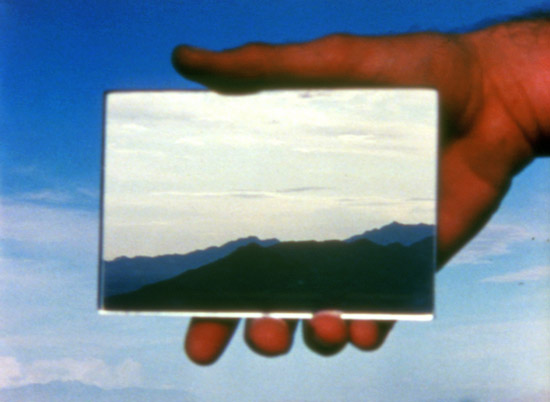Colors, light, sound, motion, film and artistic vision ““ these are the basic elements of the experimental films found in “The Cross Revolves at Sunset.”
The UCLA Film & Television Archive and Los Angeles Filmforum offer a program of nine experimental short films that have been recently restored by the Academy Film Archive. The restored films will be screened at the Billy Wilder Theater in Westwood on Saturday at 7:30 p.m., and UCLA students receive free entry with their BruinCard.
“The great thing about this program is that there is always a sense of discovery, there’s always something that you haven’t seen before that just blows you away. … There is always something to discover, and it’s pretty exciting,” said Paul Malcolm, a film programmer for the UCLA Film & Television Archive.
The experimental film screening serves the double purpose of revealing rare, restored avant-garde cinema for public viewing while also emphasizing the importance of restoration and preservation of cinematic work, according to Malcolm.
“People who are interested in film should open up to the idea that film doesn’t just have to be about story and character but can also be about concepts, abstraction, light or movements. … Film can be this kind of other thing,” said Academy preservationist Mark Toscano.
While it may be more difficult to understand or define an experimental film in traditional cinematic terms, experimental films don’t follow the standard rules of character narratives and require the audience to pay close attention, said Filmforum executive director and film programmer Adam Hyman.
“These (experimental films) are films by artists who are interested in engaging with the medium as a form of personal and artistic expression,” Malcolm said.
“Hand Held Day,” one of the films featured, was shot in the Arizona desert with the use of time-lapse photography and a handheld mirror that reflected the view into the camera, Toscano said.
“I think (experimental films) come actually more out of the fine art tradition and can be viewed using the same mind that one views paintings and sculptures and installations with as opposed to something that one compares to Hollywood film,” Hyman said.
The program’s experimental films focus on the nature of film as an artistic medium of personal expression, unlike other commercial cinematic creations like major motion pictures, Malcolm said.
“Film is not just a content-delivery system. It’s not just like the story itself is all that matters, and you can just watch it on your iPod, and it is all the same. There are films that need to be projected and the experience of it … is part of the whole experience,” Hyman said.
As a physical medium, film has the poetic potential to be comprehended in a very hands-on way that separates it from digital technology, Toscano said. With DVDs, the romance is gone, he added.
“We get so worn down by the standard corporate media imagery that bombards us every day that people need to step out of that and re-approach and reengage with visual media from a new perspective,” Malcolm said. “I think that’s what these films do.”
